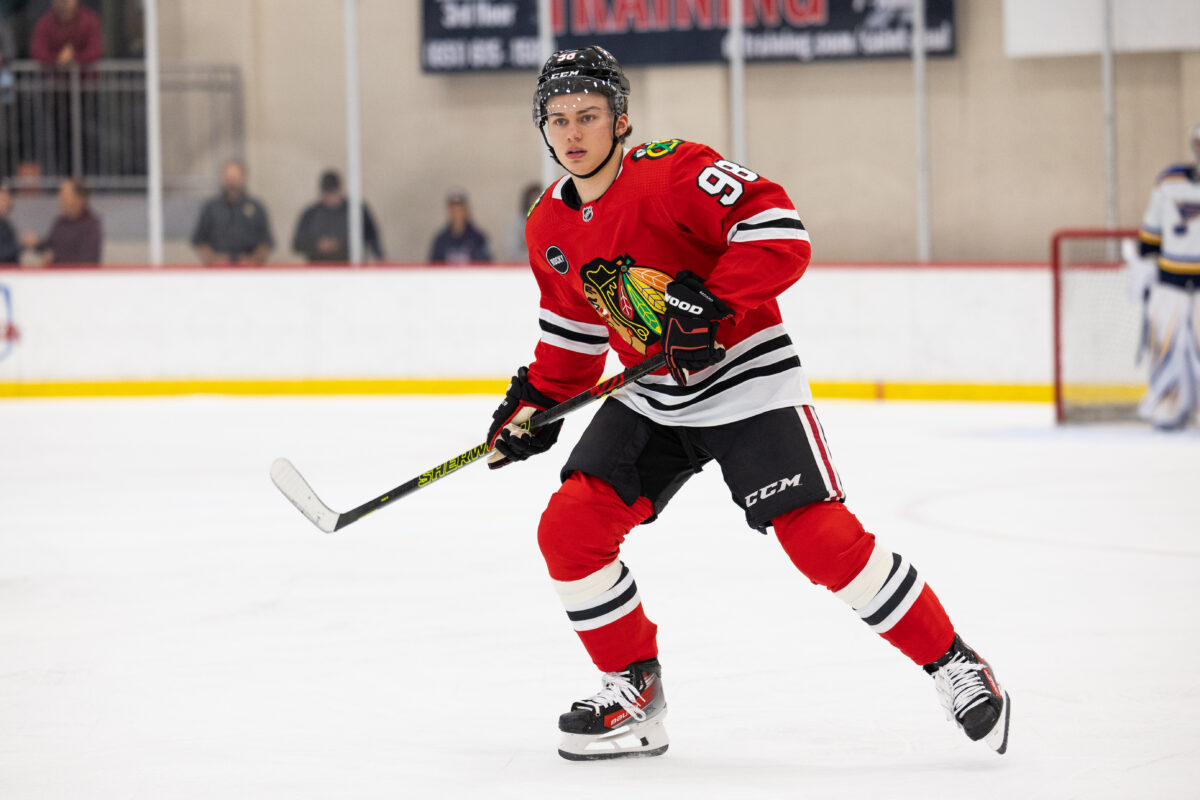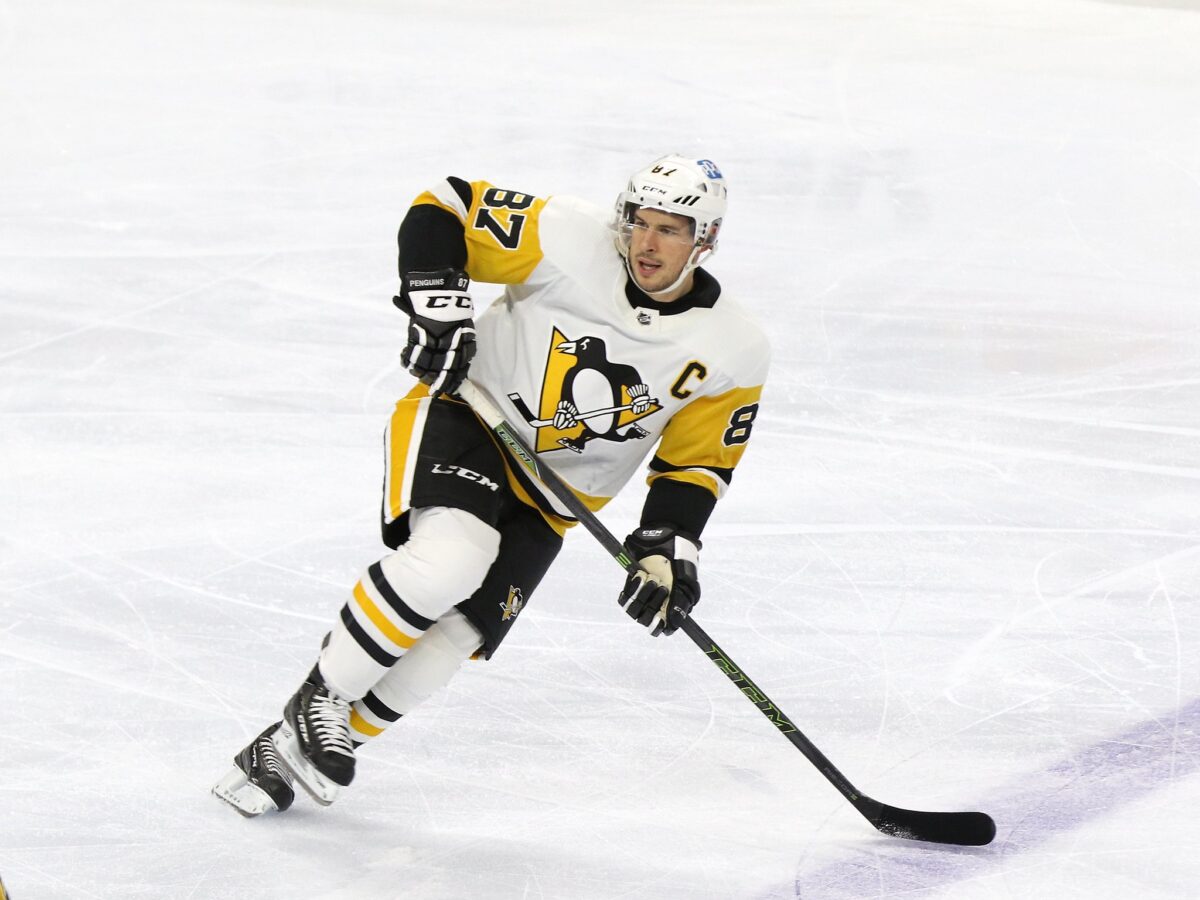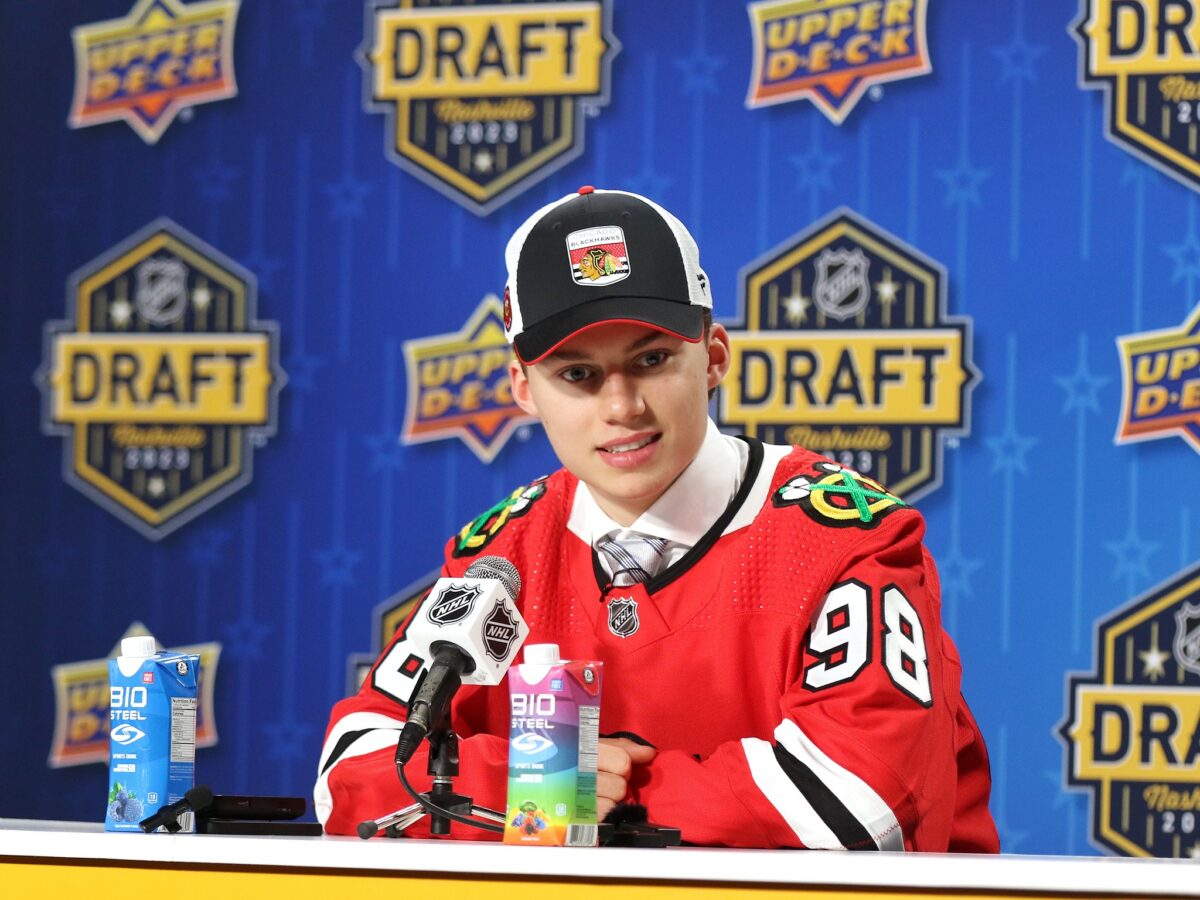All aboard the hype train! Connor Bedard is nearing his NHL debut. He has been billed as the next big hockey superstar since he was a young teen, and his professional career is finally about to begin. Young players who receive this much media attention are under a mountain of pressure, but the great ones always seem to deliver.

Will Bedard live up to expectations right out of the gate? The best way to predict the future is to look at the past. The last two players considered generational talents are Sidney Crosby and Connor McDavid. What does Bedard have in common with these two superstars? Will he follow in their footsteps with a fantastic rookie season? I’ll attempt to answer those questions today.
Junior Careers
| GP | Goals | Assists | Points | Plus/Minus | |
| Sidney Crosby | 62 | 66 | 102 | 168 | Plus-78 |
| Connor McDavid | 47 | 44 | 76 | 120 | Plus-60 |
| Connor Bedard | 57 | 71 | 72 | 143 | Plus-39 |
When Crosby completed his final season of junior hockey in 2004-05 with the Rimouski Oceanic, he had a mind-boggling 2.70 points per game (P/G). It was the most productive Quebec Major Junior Hockey League (QMJHL) season for an under-18 prospect since 1983, cementing Crosby as the best prospect of his generation. We wouldn’t see another season like it in major junior until 2014-15 when McDavid reached 2.55 P/G with the Erie Otters. Bedard’s final season in the Western Hockey League (WHL) with the Regina Pats resulted in a 2.50 P/G scoring rate, nearly matching McDavid’s totals.
Where Bedard shined was in the goal-scoring department. His 1.24 goals per game is the highest scoring rate for a 17-year-old in WHL history. He also had an impressive World Junior Championship, producing 14 points in seven games. Bedard’s numbers in junior were certainly comparable to Crosby and McDavid’s, but he’s more of a natural goal-scorer than them.
In terms of team success, Crosby’s Oceanic took the cake. They won the QMJHL Championship and came just one win shy of a Memorial Cup, losing to a stacked London Knights squad. Crosby led the tournament in scoring and had a standout performance against the Ottawa 67’s, registering a hat trick.
In 2014-15, the Otters, led by McDavid, fell short in the OHL Championship against the Oshawa Generals. He led the playoffs in scoring by a massive 18-point margin despite the loss. Bedard never came close to a championship, but it says more about the team constructed around him than anything. He scored at an even higher rate than Crosby and McDavid did in their biggest Canadian Hockey League (CHL) playoff runs, with 20 points in seven games, but his Pats were still bounced in the first round by a deeper Saskatoon Blades squad.
Bedard didn’t have the luxury of a great team around him, but he did have an impressive junior career nonetheless. It’s safe to say he earned the right to be the most highly anticipated prospect in nearly a decade.
Playstyle
Crosby has Wayne Gretzky-esque hockey IQ and incredible vision. Combined with his slick passing and ability to position himself for open shooting opportunities, he is a lethal offensive threat. He has used his edgework and strength to become one of the best players cycling the puck in the offensive zone. Crosby became known for his well-rounded game as his career progressed, thanks to his commitment to improving at both ends of the ice.

McDavid shares a similar playmaking ability to Crosby. And while he wasn’t an elite shooter in junior, his speed and hands gave opposing teams nightmares. McDavid might be the fastest skater the NHL has ever seen, and his silky smooth stick handling and agility make him nearly impossible to stop when he winds up in the neutral zone. He also developed a sneaky good wrist shot once he reached the NHL level, adding a new dimension to his game.
Bedard has a much different skillset than McDavid. He isn’t the fastest player, but he has one of the most deceptive wrist shots I’ve ever seen. He curls the puck and changes the angle just before he shoots, which can help him thread the puck past defenders and confuse the goaltenders. His blistering shot and elite puck skills are the primary ways he produces offense. Part of what has made Crosby and McDavid the best players of their generation is their ability to constantly evolve. It will be fascinating to see what Bedard can add to his toolkit as his career progresses.
Rookie Seasons
In 2005-06, the NHL experienced an uptick in offense league-wide. Due to rule changes following the NHL lockout, scoring increased, and that was a massive benefit for a young Crosby. He stormed out of the gate with 102 points. He nearly doubled his closest teammate in points, Sergei Gonchar, who had 58.
Related: Connor Bedard & the History of 18-Year-Old NHL Rookies
McDavid had a smooth transition to the NHL as well. He scored at an 87-point pace. Unfortunately, his season was cut short by a clavicle injury, resulting in a 48-point season in 45 games. McDavid played with talented young players like Taylor Hall and Leon Draisaitl, but the 2015-16 Edmonton Oilers were a much shallower lineup than Crosby’s Penguins.

Bedard will start his rookie season with a Chicago Blackhawks team that admittedly looks pretty rough on paper. They added Hall in the offseason to give him some help offensively, but this group lacks defense, depth, and goaltending. Starting with a bad team is par for the course when it comes to first-overall picks, though, so this shouldn’t be a major concern.
What to Expect From Bedard
Generational talents almost always start their careers with a bang. Gretzky, Mario Lemieux, Crosby, and McDavid immediately impacted the game as soon as they entered the NHL. Bedard is on that level, and I expect him to produce at least a point per game in his rookie season, just as the generational talents before him did. His playstyle might make him a better goal scorer than McDavid and Crosby when they first entered the league, but his lack of offensive teammates will make things more challenging. There is almost zero chance that Bedard can lead this version of the Blackhawks to the playoffs right away. Only three of the last 18 first-overall picks made the playoffs in their first season. He will likely follow in Crosby and McDavid’s footsteps by missing the postseason in year one.

There is, however, one thing he can accomplish that neither of them did: he can win the Calder Trophy. The ‘Rookie of the Year’ title eluded McDavid due to injuries, and Alexander Ovechkin edged out Crosby in his rookie season. Based on his style of play, Bedard reminds me of a smaller, more gifted version of Auston Matthews. Given Matthews’ 40-goal rookie season that ended in a Calder Trophy, Bedard should be a heavy favorite to win the award.
My official prediction for Bedard is that he will finish in the 35-40 goal range, with around 82 points en route to a convincing Calder Trophy win. His goal-scoring prowess should place him higher than McDavid’s 29-goal pace in his first NHL season. Assists will be tough to come by with the lack of NHL-ready talent in Chicago, but Bedard is crafty enough to find a way to break the point-per-game plateau. He’s a serious game-breaker, and the fans in Chicago should be excited. He’s about to change everything for this organization.
